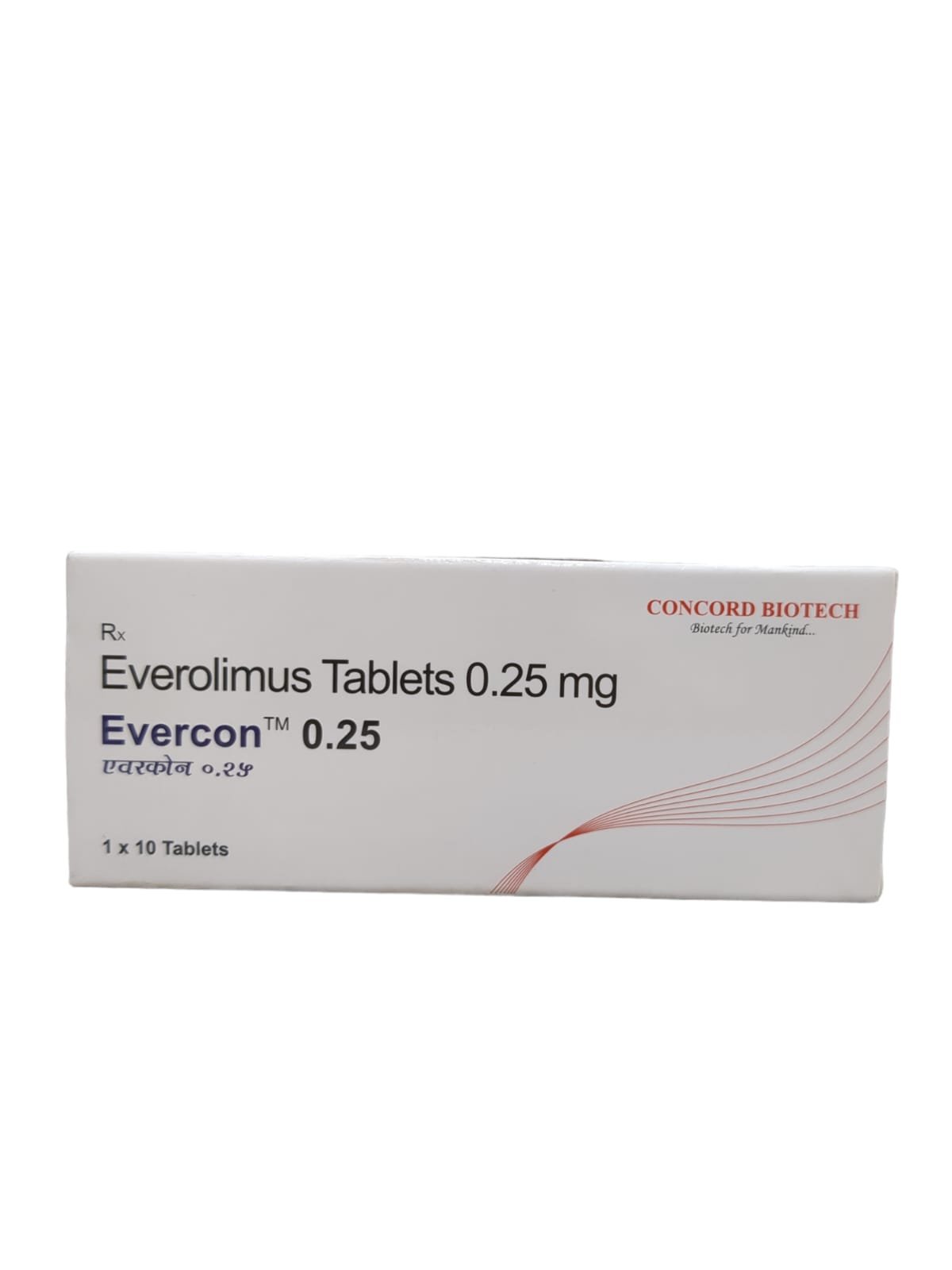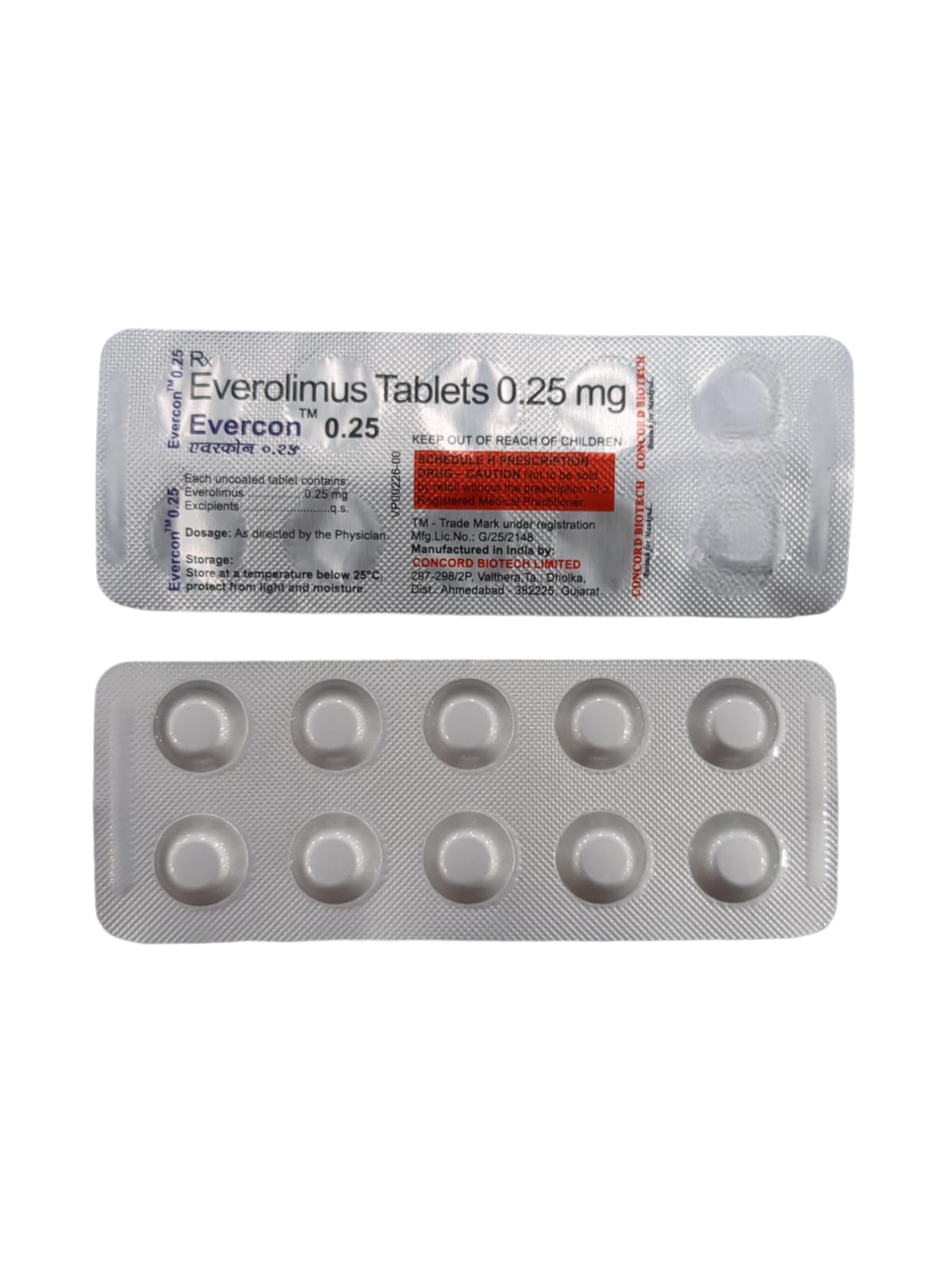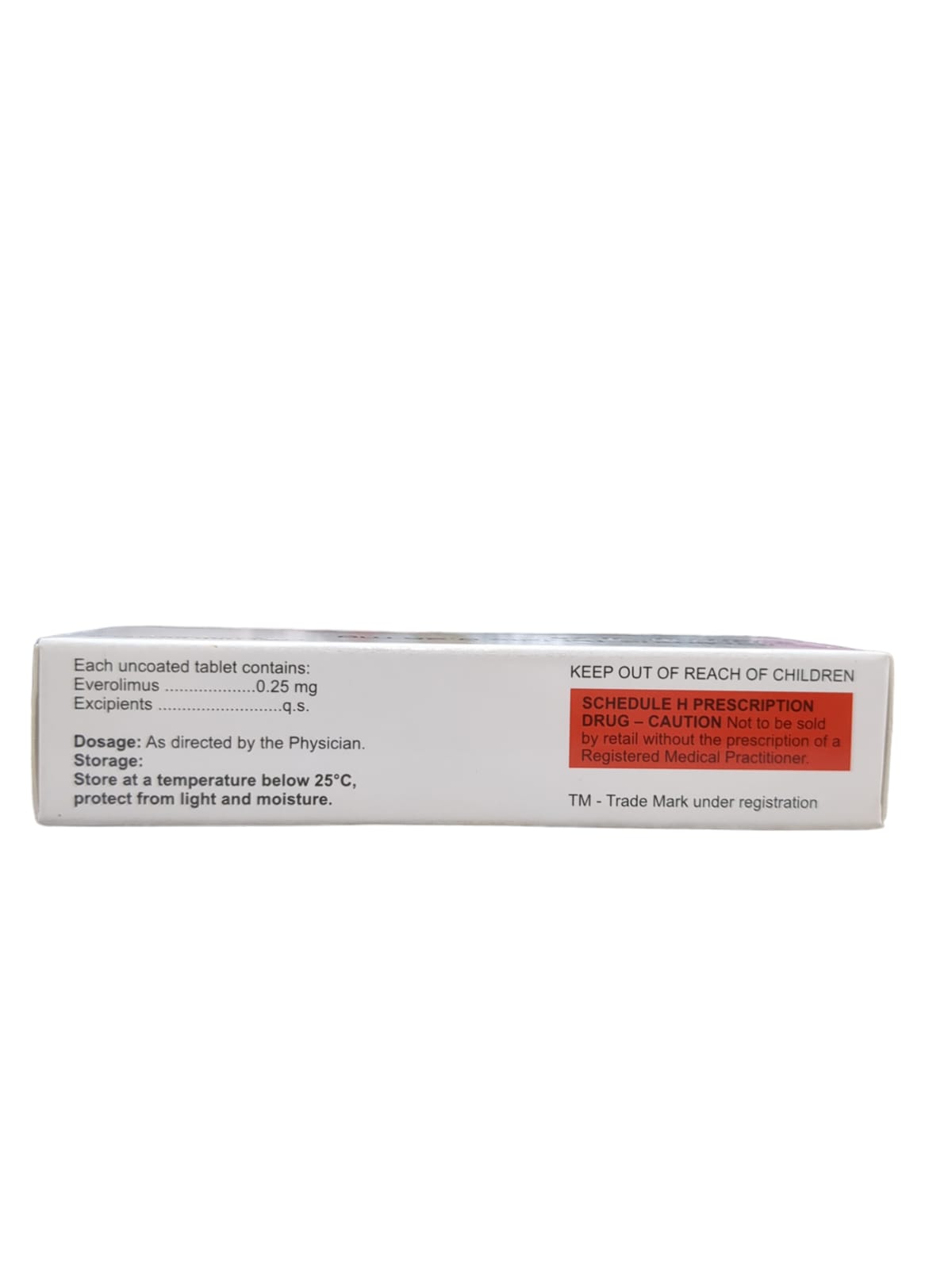Salt: Everolimus (0.25mg)
Prescription Required: Yes
Evercon 0.25mg Tablet
MRP: ₹426.00 Discount: 35%
Sale Price:
Sale Price:
₹280.00
Evercon 0.25mg Tablet is used for the prevention of organ rejection in transplant patients. It regulates the body’s immune response, so the body can accept the new organ. It is also used in combination with other medicines to treat cancers of breast, pancreas, lungs, and kidney.
Weight/Quantity: 10 Tablets in 1 Strip
Store at temperature below 25°C, Protect from Light & Moisture.
Evercon 0.25 mg tablet is an antineoplastic drug belonging to the class of mTOR inhibitors, containing the active ingredient everolimus. It is used to treat advanced breast cancer, renal cell carcinoma, pancreatic neuroendocrine tumours, and also in the treatment of subependymal giant cell astrocytoma (tumours are found in the ventricles of the brain). Good oral hygiene and regular dental check-ups is important during the treatment since this medicine can cause sores or ulcers in the mouth. It is often combined with cyclophosphamide, an alkylating agent, to treat subependymal giant cell astrocytoma.
Evercon 0.25mg Tablet is used with other medications to prevent organ transplant rejection. Rejection usually happens due to attack by the immune system of the person receiving the transplanted organ on the transplant itself, in people who are receiving any organ transplants, like kidney, liver, heart etc. This medicine reduces the activity of a person's own immune system and prevents any such rejection.
Take this medicine in the dose and duration as advised by your doctor.
Take this medicine in the dose and duration as advised by your doctor.
Most side effects do not require any medical attention and disappear as your body adjusts to the medicine. Consult your doctor if they persist or if you’re worried about them
Common side effects of Evercon
Infection
Fever
Cough
Fatigue
Diarrhea
Upper respiratory tract infection
Common side effects of Evercon
Infection
Fever
Cough
Fatigue
Diarrhea
Upper respiratory tract infection




